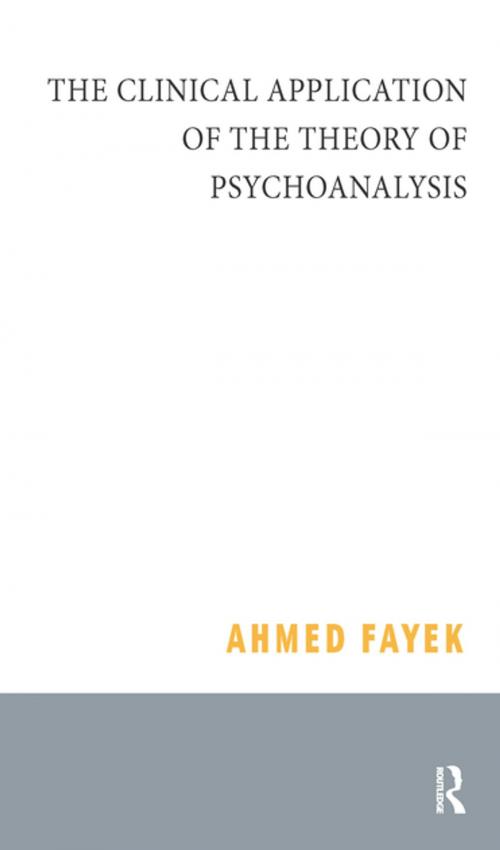The Clinical Application of the Theory of Psychoanalysis
Nonfiction, Health & Well Being, Psychology, Mental Health| Author: | Ahmed Fayek | ISBN: | 9780429920301 |
| Publisher: | Taylor and Francis | Publication: | March 22, 2018 |
| Imprint: | Routledge | Language: | English |
| Author: | Ahmed Fayek |
| ISBN: | 9780429920301 |
| Publisher: | Taylor and Francis |
| Publication: | March 22, 2018 |
| Imprint: | Routledge |
| Language: | English |
Psychoanalysis - the one that we are familiar with - started in the clinical field. Freud and Breuer made some strides in the treatment of hysteria using hypnosis. They put together a theory of psychopathology based on two basic notions: conflicts between acceptable and unacceptable impulses (ideas, desires, fantasies, etc.), and the repression of the unacceptable impulses causing the formation of symptoms. Under hypnosis, the patients were given the chance to abreact the repressed, and the therapeutic endeavour was to allow catharsis, hence the origin of the term "catharsis theory" regarding this phase of hypnosis. However, the real breakthrough in psychoanalysis came to Freud in intuitions about matters from outside the field of pathology and the clinic, and without the help of hypnosis. They came from ordinary, even banal, phenomena like dreams, slips of the tongue, and jokes. In this book, the author covers the difference between a modified theory of catharsis and a theory of psychoanalysis, as well as the importance of psychodynamic diagnosis in the practice of psychoanalysis.
Psychoanalysis - the one that we are familiar with - started in the clinical field. Freud and Breuer made some strides in the treatment of hysteria using hypnosis. They put together a theory of psychopathology based on two basic notions: conflicts between acceptable and unacceptable impulses (ideas, desires, fantasies, etc.), and the repression of the unacceptable impulses causing the formation of symptoms. Under hypnosis, the patients were given the chance to abreact the repressed, and the therapeutic endeavour was to allow catharsis, hence the origin of the term "catharsis theory" regarding this phase of hypnosis. However, the real breakthrough in psychoanalysis came to Freud in intuitions about matters from outside the field of pathology and the clinic, and without the help of hypnosis. They came from ordinary, even banal, phenomena like dreams, slips of the tongue, and jokes. In this book, the author covers the difference between a modified theory of catharsis and a theory of psychoanalysis, as well as the importance of psychodynamic diagnosis in the practice of psychoanalysis.















